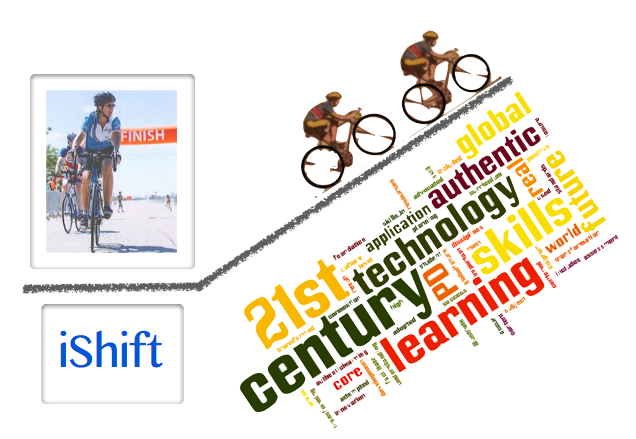There comes a point on long rides when one starts feeling exhausted. Experienced riders recognize the feeling and take precautionary measures - rest, hydration, a snack. Sometimes, however, especially on long rides when lost in the moment and divorced from the body, even the strongest riders experience the bonk. Bonking is when glycogen stores in the muscles and liver have been depleted and the body simply gives out. I’ve personally come micro-close to bonking only one time. The crackling cellophane of hundreds of twirling peppermints that invaded my senses of sound and sight [hallucinating!] snapped me into reality real fast. Bonking is frequently blamed on insufficient calorie intake, but the truth is, it is usually a result of insufficient training and lack of awareness. When it happens, there is only one result. You. Are. Done.
In education, we call this burnout. Signs of this happening seem to most frequently occur during that dreaded period of the year know as the February Funk. Warning signs of this looming on the horizon are many, and include physical, emotional and interpersonal struggles. The good news is, that with awareness and proper support, you can overcome these stressors. First, one needs to recognize the signs. Here is a tool that you can use for self-assessment. Next, allow yourself to feel uncomfortable. This is an important step if you are to move forward. This quote by Charles Caleb Colton sums it up best, "Times of great calamity and confusion have been productive for the greatest minds. The purest ore is produced from the hottest furnace. The brightest thunder-bolt is elicited from the darkest storm". Finally, be intentional about making changes to your thinking and practices. This article does a great job of discussing these tips, and is summed up here:
- Ask for help - find a mentor, add to your PLN, etc.
- Learn to not sweat the small stuff - keep student learning your focus
- Leave work at school - don't play the teacher at home
- Make time for yourself - workout, eat a healthy diet, get enough rest, listen to music, engage in a hobby
- Remember to keep the main thing the main thing
During a particularly unpleasant drill in my cycling class, the coach urged us to remember that when the body starts feeling done, to let the brain take over (thank you Kristen Meshberg www.pwppedalingwithapurpose.blogspot.com). In fact, recent research suggests that the brain may actually anticipate glycogen depletion and begin slowing the body to conserve energy (Bourne & Rapoport, 2010). Somehow, just knowing this helps me keep going. Hopefully, recognizing the stressors we face as educators and purposefully engaging in positive actions will strengthen our resolve to be the best we can for our students.
